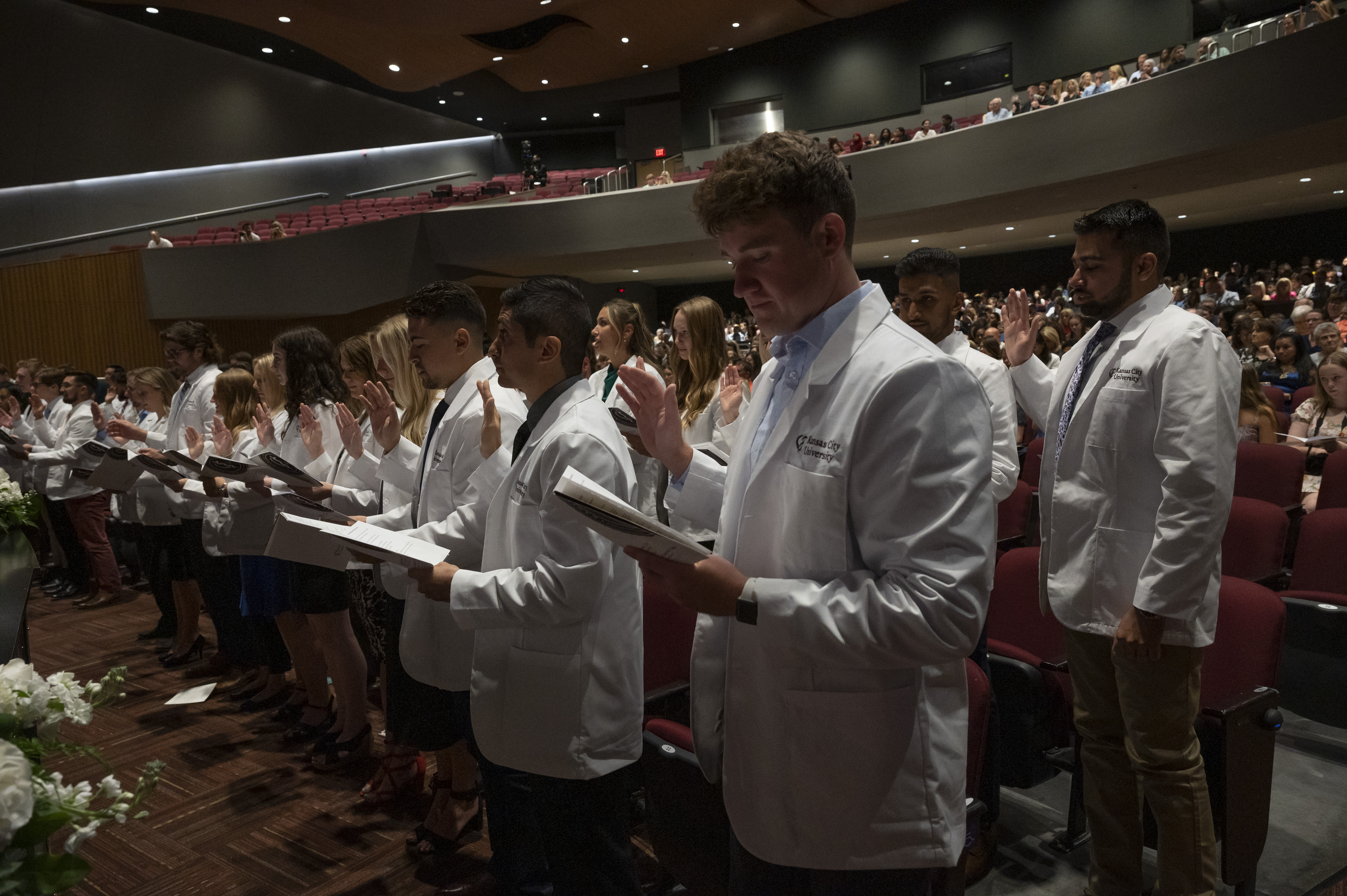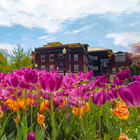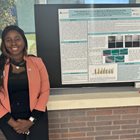The inaugural class of Kansas City University’s College of Dental Medicine (KCU-CDM) at the Farber-McIntire Campus in Joplin formally marked the beginning of their educational journey toward becoming dentists with a white coating ceremony on Saturday, August 18, 2023, at Joplin High School Performing Arts Center.
“In four short years, as graduating dentists, you will have the ability to relieve pain, improve functions like chewing and speaking, change a smile, treat serious illnesses, and save lives. This transformational journey starts today with this white coat ceremony,” said Linda Niessen, DMD, founding dean of KCU-CDM and vice provost of oral health affairs, as she addressed the inaugural class.
Chief Glenna Wallace delivered the keynote message during the ceremony. In 2006, Wallace achieved notoriety when she was elected as the Eastern Shawnee Tribe’s first-ever female chief, an office she still retains today. In addition to her role as chief of the Eastern Shawnee Tribe of Oklahoma, Wallace serves on the KCU Board of Trustees, a post she has held since 2017.
“Your vision as a dentist is to care for people, physically and mentally. Be a total care giver. Use your scientific knowledge but at the same time, make each patient, each person, feel he or she is valued—a person and not just any person but a person of immense value. Give that away. In my lifetime I have learned and forgotten a great deal of information…But I have never forgotten how a person made me feel,” said Wallace.
Students arrived on campus in late July and will learn the science of dental medicine using the latest technology with simulated patients, 3-D printing, intra-oral cameras and digital scanning of teeth. Among the 80 students in the Class of 2027, 45 percent come from Missouri, Kansas, Arkansas and Oklahoma. Nearly 60 percent of the students are from rural communities and aspire to establish practices and serve rural communities when they graduate.
By opening the nation’s newest and most innovative College of Dental Medicine, KCU hopes to provide more dentists to the area in the coming years. The Joplin region, like many rural areas in the United States, suffers from a shortage of dentists. Nearly all counties within a 100-mile-radius of Joplin qualify as Dental Health Professional Shortage Areas by the U.S. Health Resources and Services Administration. Missouri alone has an estimated shortage of more than 700 dentists, Oklahoma requires 166 more dentists, and both Arkansas and Kansas need more than 100 to address these shortages.
“I was drawn to dentistry when I was in dental hygiene school and I realized that the skill set I was learning there would not match the need that I saw in my community, said Stephanie Melot, first-year student doctor at KCU-CDM The need for quality dental treatment in the underserved community where I lived would only partly be met by what I could do as a dental hygienist, and I wanted to be able to fully meet those needs,” she noted. “I’m honored to be among the first students at KCU’s College of Dental Medicine!”


_20240917133536_0.png?w=140&h=140)

(0) Comments